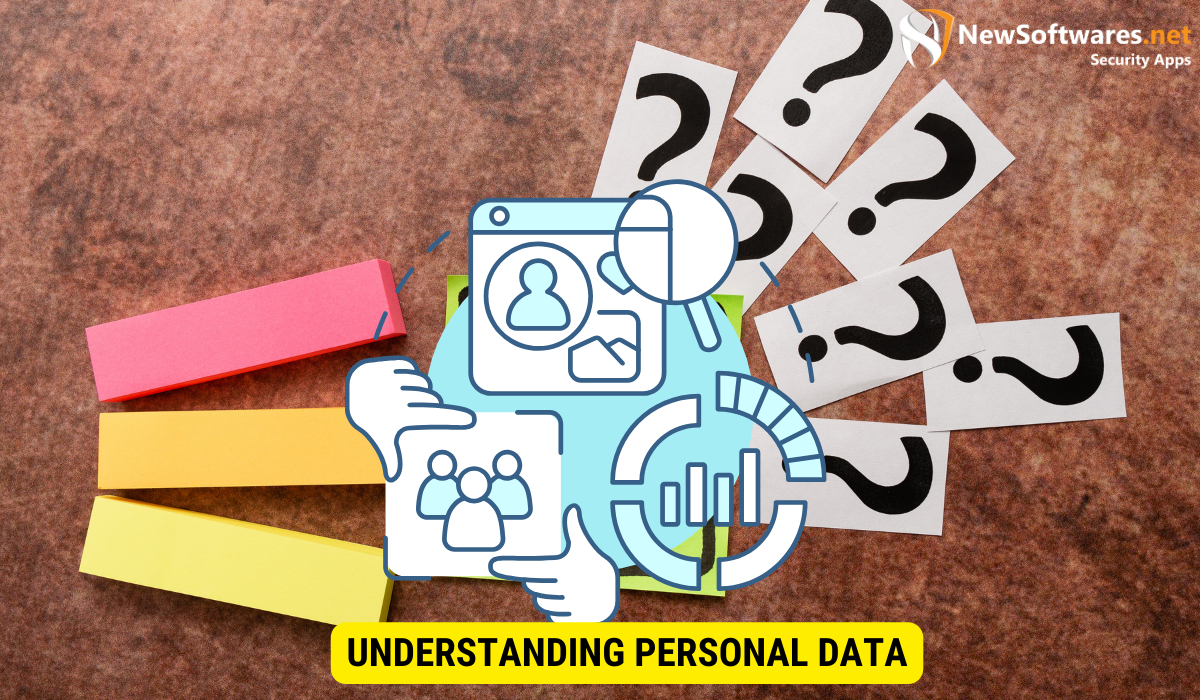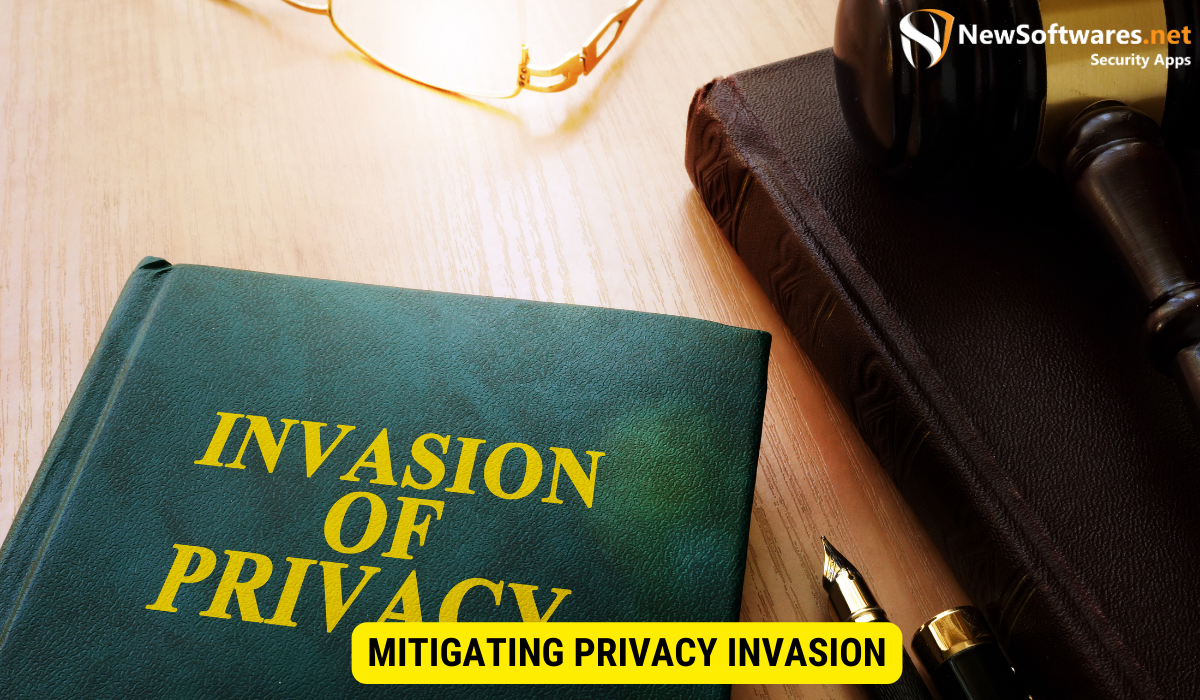Accessing all of someone’s data without their explicit consent is typically regarded as an invasion of privacy. Personal data, including sensitive information, is protected by privacy laws and regulations in many countries. Ethical concerns also come into play, as obtaining personal data without consent can violate an individual’s right to privacy and autonomy. S
In today’s digital age, where personal information is constantly being collected and shared, the question of whether accessing someone’s personal data amounts to an invasion of privacy is important. Understanding the complexities surrounding personal data, the legal perspective, ethical implications, the role of technology, and ways to mitigate privacy invasion is crucial in shaping our understanding of this issue. Together, we will investigate into these aspects and explore the various dimensions of the topic.
Understanding Personal Data

Before delving into the invasion of privacy debate, it is essential to grasp the concept of personal data. Personal data refers to any information related to an identifiable individual. This can include names, addresses, phone numbers, email addresses, financial data, healthcare information, social media activity, and more. It encompasses any data that can directly or indirectly identify an individual.
Personal data is a fundamental aspect of our digital lives, playing a significant role in various aspects of our daily routines. From online shopping to social media interactions, personal data is constantly being collected, kept, and analyzed by organizations across the globe. Understanding the intricacies of personal data is crucial in today’s interconnected world.
Now, let’s explore the different types of personal data that exist:
Types of Personal Data
Personal data can be categorized into various types, each providing unique insights into an individual’s life. These categories include:
- Demographic Information: Demographic information encompasses age, gender, ethnicity, and marital status. This type of data helps organizations understand the characteristics and preferences of their target audience, allowing them to adapt their products and facilities accordingly.
- Biometric Data: Biometric data refers to unique physical or behavioral characteristics that are used for identification purposes. Examples include fingerprints, facial recognition, iris scans, and voice patterns. Biometric data is increasingly used for security purposes, such as unlocking smartphones or accessing secure facilities.
- Financial Records: Financial records encompass a wide range of data, including banking information, credit card details, transaction history, and income statements. This highly sensitive data type requires strict security measures to protect against unauthorized access and fraud.
- Online Activity: Online activity data includes browsing history, search queries, social media interactions, and user behavior on websites and applications. This data is valuable for businesses as it helps them understand consumer preferences, improve user experience, and effectively target advertising.
- Geolocation Data: Geolocation data reveals an individual’s physical whereabouts at a given time. This information is collected through GPS-enabled devices such as smartphones and can be used for various purposes, including navigation, location-based services, and targeted marketing.
By categorizing personal data into these distinct types, organizations can better understand individuals and their behaviors. However, it is important to note that the collection and use of personal data must be done responsibly and ethically, respecting individuals’ privacy rights and ensuring data security.
The Legal Perspective on Privacy Invasion
Privacy invasion is a pressing concern in today’s digital age, and jurisdictions worldwide have recognized the need to protect individuals’ data. Many countries have implemented comprehensive laws and regulations to safeguard personal information to tackle this potential invasion of privacy.
Privacy Laws and Regulations
These laws outline individuals’ rights over their personal information and set guidelines for its collection, storage, and usage. They aim to balance the need for organizations to collect data for legitimate purposes and the protection of individual privacy rights.
One notable example of privacy legislation is the General Data Protection Regulation (GDPR) in the European Union. This regulation, which occurred in 2018, has significantly strengthened individuals’ control over their data. It requires organizations to obtain explicit consent before processing personal information and provides individuals the right to access, correct, and delete their data.
Moreover, the GDPR imposes strict obligations on organizations, such as implementing appropriate security measures to protect personal data and notifying individuals and authorities during a data breach. Failure to comply with these obligations can result in hefty fines, amounting to millions of euros.
Other countries have also enacted privacy laws outside the European Union to protect their citizens’ personal data. For instance, the California Consumer Privacy Act (CCPA) in the United States grants consumers the right to know what personal information is being collected about them and the right to opt out of the sale of their data.
Consequences of Privacy Invasion
The consequences of privacy invasion can be severe and far-reaching, impacting individuals and organizations. When personal data falls into the wrong hands, it can result in identity theft, financial losses, reputational damage, and even blackmail.
Identity theft, in particular, can wreak havoc on an individual’s life. Cybercriminals can use stolen personal information to open fraudulent accounts, make unauthorized purchases, or commit other criminal activities in the victim’s name. Recovering from such incidents can be long and arduous, involving legal procedures and financial burdens.
Furthermore, privacy breaches can have a detrimental effect on the reputation of organizations. In today’s interconnected world, news of a data breach spreads quickly, leading to negative publicity and losing trust among customers and stakeholders. This loss of trust can have long-term consequences, affecting business relationships, customer loyalty, and overall brand reputation.
Legal actions and penalties can also be imposed on organizations that fail to comply with privacy regulations. In addition to the fines imposed by regulatory authorities, affected individuals may file lawsuits seeking compensation for the harm caused by the privacy invasion. These legal actions can result in significant financial and legal repercussions, highlighting the importance of adhering to privacy laws.
Individuals and organizations alike must understand and respect privacy laws and regulations. By doing so, they can protect personal data, maintain trust, and contribute to a more secure and privacy-conscious digital environment.
Ethical Implications of Accessing Personal Data
Consent and Personal Data
A key ethical concern surrounding accessing personal data is the issue of consent. Informed consent implies that individuals are fully aware of how their data will be used, and they have the freedom to grant or deny permission. Individuals often unknowingly consent through lengthy terms and conditions or complex privacy policies. Ethical considerations necessitate transparent and understandable consent processes, ensuring that individuals know and understand how their data will be used.
The Balance Between Security and Privacy
Another ethical consideration is the balance between security and privacy. While protecting personal data is crucial, it must also be weighed against the need for enhanced security measures. Striking the right balance is challenging, as increased security often requires collecting more personal information. Finding ethical solutions that prioritize privacy while ensuring robust security measures is essential in navigating this delicate balance.
The Role of Technology in Privacy Invasion
Data Collection and Tracking
The advancement of technology has significantly facilitated the collection and tracking of personal data. Organizations rely on various methods, such as cookies, device fingerprints, and data analytics, to gather information about individuals. This data is used for targeted advertising, personalized experiences, or even sold to third parties. The technological aspect of privacy invasion necessitates robust safeguards within the digital infrastructure to prevent unauthorized access or data breaches.
Cybersecurity Measures and Personal Data
Ensuring the security of personal data is a paramount concern. Cybersecurity measures, such as encryption, secure networks, and regular vulnerability assessments, protect personal information from unauthorized access. Organizations and individuals need to adopt these measures to mitigate the risk of privacy invasion and maintain personal data’s confidentiality, integrity, and availability.
Mitigating Privacy Invasion

Best Practices for Protecting Personal Data
To mitigate privacy invasion, individuals and organizations can follow best practices to protect personal data. These include implementing strong access controls and secure authentication mechanisms, encrypting sensitive information, regularly updating systems and software, and educating individuals on privacy and data protection. Organizations should also conduct privacy impact assessments and adopt privacy-by-design principles to ensure privacy is embedded into their processes and products from the outset.
The Future of Privacy in the Digital Age
As technology advances and data collection becomes even more prevalent, the future of privacy remains a topic of ongoing discussion. Stricter regulations, innovative privacy-enhancing technologies, and increased awareness and advocacy for digital rights will likely shape the future privacy landscape. Ensuring a balance between access to data for societal benefits and protecting individual privacy rights will be crucial in navigating this evolving landscape.
Key Takeaways
- Accessing someone’s data raises complex questions about invasion of privacy.
- Personal data encompasses various types, including demographic, biometric, financial, online activity, and geolocation data.
- Privacy laws and regulations aim to protect personal data and provide individuals with control over their information.
- Informed consent and balancing security and privacy are important ethical considerations.
- Technology plays a significant role in enabling privacy invasion, necessitating robust cybersecurity measures.
- Following best practices and adopting privacy by-design principles can mitigate privacy invasion.
FAQs
Q: Is accessing personal data without consent always an invasion of privacy?
A: Accessing personal data without consent can be considered an invasion of privacy, as individuals have the right to control how their personal information is used and shared. However, context plays a role, and in certain situations, there may be legal or legitimate reasons for accessing personal data without explicit consent, such as for law enforcement purposes or national security interests.
Q: How can individuals protect their data from privacy invasion?
A: Individuals can take various measures to protect their data, such as using strong and unique passwords, enabling two-factor authentication, being cautious of sharing sensitive information online, regularly updating software and devices, and reviewing and understanding privacy settings and policies of online platforms.
Q: What is the future outlook for privacy in the digital age?
A: The future of privacy in the digital age will likely involve stricter regulations, advancements in privacy-enhancing technologies, and increased awareness and advocacy for digital rights. Striking a balance between accessing valuable data for societal benefits and protecting individual privacy rights will be crucial in shaping the future landscape of privacy.
Conclusion
In conclusion, the question of whether accessing personal data amounts to an invasion of privacy prompts us to consider the various dimensions of the topic. With the advancement of technology and increasing data collection practices, it is crucial to balance the benefits and potential risks. By understanding personal data, legal implications, and ethical considerations and implementing robust security measures, we can protect personal privacy while harnessing the advantages offered by a data-driven world.
